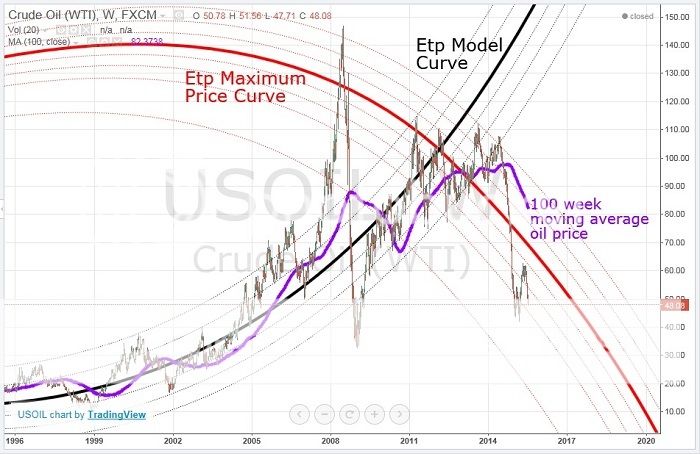Hi Write4U.
From the worldometers.info site:
Countdown to the end of Oil:
38 Years, 2 Months, 28 Days, 20 Hours, 57 Minutes, 56 Seconds
Assumption:
Unfortunately, as scary as this may sound, it turns out to be a wildly optimistic estimate based on unsound, obsolete forecasting techniques as well as the obviously unsound assumption above.
The Etp model is based on the laws of thermodynamics as applied to the lifecycle of the oil production process. It measures the rising entropy production in the oil production process over time. It accurately forecasts that the price of oil can no longer (since 2012) rise to a level sufficient to pay for the full cost of oil production going forward. The price of oil will continue dropping. The Etp model forecasts that we really don't have 38 years left until the end of oil. We really only have about 5 years left (2021)! Since oil is our primary energy source, accounting for around 38% of total energy and around 90% of transportation fuels, this effectively means we have reached the end of world economic growth. And the end of world economic growth signals the onset of collapse.
Since oil is our primary energy source, accounting for around 38% of total energy and around 90% of transportation fuels, this effectively means we have reached the end of world economic growth. And the end of world economic growth signals the onset of collapse.

---Futilitist
From the worldometers.info site:
Countdown to the end of Oil:
38 Years, 2 Months, 28 Days, 20 Hours, 57 Minutes, 56 Seconds
Assumption:
- If consumed at current rates
Unfortunately, as scary as this may sound, it turns out to be a wildly optimistic estimate based on unsound, obsolete forecasting techniques as well as the obviously unsound assumption above.
The Etp model is based on the laws of thermodynamics as applied to the lifecycle of the oil production process. It measures the rising entropy production in the oil production process over time. It accurately forecasts that the price of oil can no longer (since 2012) rise to a level sufficient to pay for the full cost of oil production going forward. The price of oil will continue dropping. The Etp model forecasts that we really don't have 38 years left until the end of oil. We really only have about 5 years left (2021)!

---Futilitist
Last edited:
